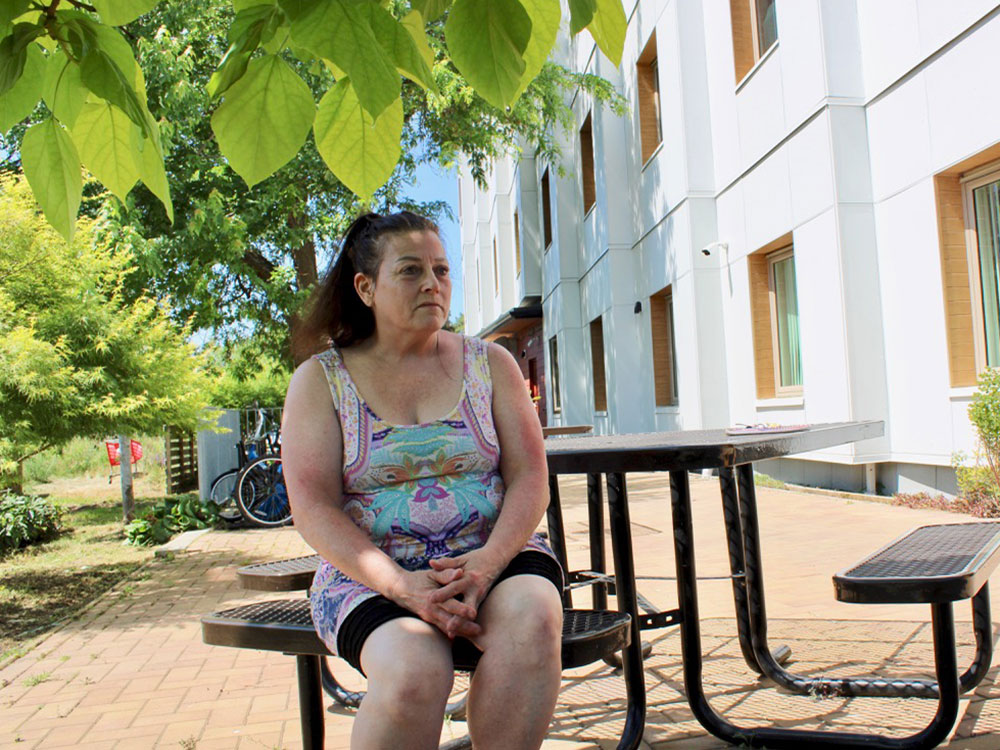The B.C. Court of Appeal has called on the province’s Residential Tenancy Branch to address “inconsistencies” in its approach to defining the rights of people in transitional housing.
The case is important, say advocates, because tenants who live in transitional housing are currently not protected by legislation that upholds their rights as tenants.
That means they have nowhere to turn if they’re evicted or believe policies like guest restrictions are being applied unfairly.
In many cases, tenants in transitional housing don’t know whether their housing falls under B.C.’s Residential Tenancy Act. Some residents have been successful in arguing the act should apply to them, winning the right to basic renter rights like having a key to the front door of their building.
But others have been stymied by Residential Tenancy Branch decisions, and housing providers often argue extra rules are needed to keep vulnerable residents safe.
Transitional housing is a type of supportive housing often offered to people who have been homeless or at risk of losing their housing. It’s supposed to assist tenants to build the life skills they need to move on to permanent housing, but some tenants live in transitional housing for years.
“The vast majority of these decisions have arbitrators coming up with their own definitions of what temporary means, and not referring to what anyone else has done,” said Julia Riddle, a lawyer with Arvay Finlay who represented the BC Civil Liberties Association as an intervenor in the case.
“You end up with 12 different definitions of temporary that are completely inconsistent. And for tenants, that means you have no idea whether you're covered by the RTA.”
Nicole McNeil, who lives in a New Westminster building run by the Elizabeth Fry Society, is the plaintiff in the case. When The Tyee interviewed McNeil in June 2023, she had lived in the building for three years with no end date and was hoping for a ruling that would determine that her housing was governed by the Residential Tenancy Act.
After a Residential Tenancy Branch arbitrator ruled B.C.’s rental laws do not apply to McNeil’s housing, McNeil took her case to the B.C. Supreme Court, which upheld the arbitrator’s decision. McNeil was particularly concerned about a no-guests policy and about how evictions were being carried out in the building.
“After that judgment I was so angry, it was just brutal. I thought no, we’re going to appeal it — we’re going to keep going,” McNeil previously told The Tyee. “We witnessed horrible things with women being thrown out.”
Vera LeFranc, CEO of the Elizabeth Fry Society, previously told The Tyee the guest restrictions were in place to keep building residents safe. She said building staff work with residents to improve their behaviour if they’ve received a “discharge notice.” If they’ve been told to leave the building, they’re encouraged to work with outreach workers to avoid becoming homeless.
Appeal court justices Lauri Ann Fenlon, Peter Voith and Karen Horsman dismissed McNeil’s appeal, in part because of the high bar to set aside the ruling of a tribunal such as the RTB. Fenlon wrote that tribunal decisions must be “patently unreasonable” or “almost bordering on the absurd” to be set aside by the court.
But reviewing the BCCLA’s submissions to the court, Fenlon said it was apparent that RTB arbitrators were making contradictory decisions when it came to transitional housing.
“Some arbitrators have found that an indefinite occupancy cannot be “temporary” since it does not require the renter to “transition” anywhere.... Other arbitrators have concluded that transitional housing should be indefinite, as it would be contrary to the purpose of providing transitional housing to have participants leave before they were capable of living independently,” Fenlon wrote.
The BCCLA also provided examples of inconsistent decisions when it comes to the length of occupancy.
“Some arbitrators have focused on the actual length of occupancy, concluding that tenancies lasting as long as four years cannot be ‘temporary,’” Fenlon wrote. “However, in other cases, arbitrators have decided long-term rentals — such as a five-year occupancy — can be considered temporary.”
Fenlon said she “would respectfully invite” the Residential Tenancy Branch to provide clearer guidance about what is and is not transitional housing.
Riddle said the Court of Appeal judgment is important to all renters, because it’s not just residents of transitional housing who have experienced inconsistent RTB decisions. The branch has the power to allow evictions to proceed or not and to determine whether landlords or tenants are owed compensation and whether landlords can be given an order of possession.
Because these are serious decisions that deeply affect people’s lives and well-being, arbitrators need to be aware of what previous arbitrators have decided, and they need to state whether they’re disagreeing with a previous decision and why, Riddle said.
“The law has been quite clear for some time that even though tribunals like the RTB don't have the same kind of strict precedent concepts that a court does, they’re still very much expected to do that process of disagreement and justification,” Riddle explained. ![]()
Read more: Rights + Justice, BC Politics, Housing

















Tyee Commenting Guidelines
Comments that violate guidelines risk being deleted, and violations may result in a temporary or permanent user ban. Maintain the spirit of good conversation to stay in the discussion and be patient with moderators. Comments are reviewed regularly but not in real time.
Do:
Do not: